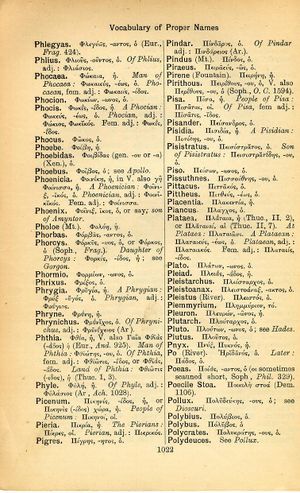Plancus
αἰὼν παῖς ἐστι παίζων, πεσσεύων∙ παιδός η βασιληίη → time is a child playing draughts; the kingship is a child's | a life-time is a child playing, playing checkers: the kingship belongs to a child | a whole human life-time is nothing but a child playing, playing checkers: the kingship belongs to a child | lifetime is a child at play, moving pieces in a game; kingship belongs to the child
English > Greek (Woodhouse)
Πλάγχος, ὁ.
Latin > English (Lewis & Short)
Plancus: i, m. (flat-footed),
I a Roman surname: plancae tabulae planae, ob quam causam et planci appellantur qui supra modum pedibus plani sunt, Paul. ex Fest. p. 231 Müll.: vola homini tantum, exceptis quibusdam: namque et hinc cognomina inventa Planci, Plauti, Scauri, Pansae, Plin. 11, 45, 105, § 254: plancus, πλατύπους, Gloss. Cyrill.: στεγανόποδες, planci, Gloss. Gr. Lat. So, Munatius Plancus, v. Munatius.—Hence,
II Plancĭānus, a, um, adj., Plancian: Diana, who had a shrine in the house of the Planci, Viscont. Mus. Pio Clem. 2, p. 21 Mediol.
Latin > French (Gaffiot 2016)
(3) Plancus,¹¹ ī, m., nom d’une branche de la gens Munatia : Plin. 11, 254 || -ĭānus, a, um, de la famille des Plancus : Inscr.
Latin > German (Georges)
Plancus, ī, m. (= πλατύπους, breitfüßig, Gloss.) eine Familie der gens Munatia, s. Orelli Onomast. Cic. p. 412 sq.; vgl. Plin. 11, 254.

